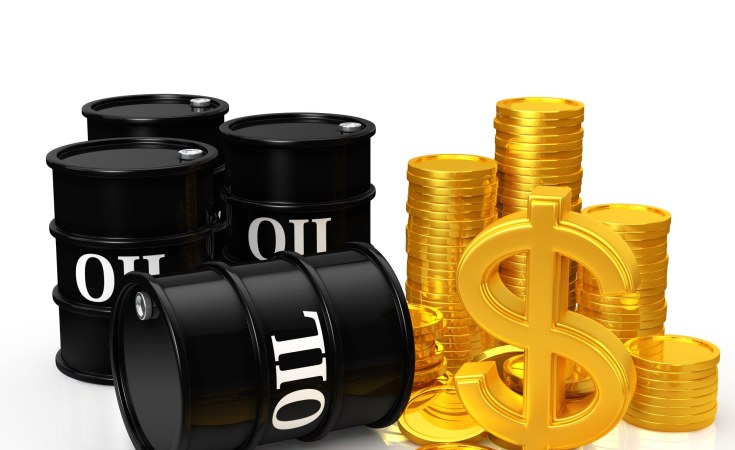The need for Nigeria to fully deregulate the downstream petroleum industry has been constantly emphasised, especially with the current economic challenges facing the country.
The arguments for and against the issue has over the years revolved around the benefits of the decision on the citizens, the economy or to a few groups and or individuals exploiting the deficit in political will to take a stand on the issue.
No doubt, the economy seems to encounter immediate impact with any change in oil price, especially the Premium Motor Spirit (PMS) otherwise known as petrol.
This section of the oil sector brings noticeable effect because it is the most used by Nigerians and mostly for consumption rather than manufacturing purposes. Most industries in Nigeria use Automotive Gas Oil (AGO) popularly known as diesel.
According to the Petroleum Products Pricing Regulatory Agency (PPPRA), deregulation of the downstream oil and gas industry entails the opening up of the sector for healthy competition where prices reflect market realities. It is not a price-ceiling system where government or its agencies manage over or under-recovery.
In addition, stakeholders in the oil and gas sector also share the same view, stating that deregulation remains the way forward for the industry and for the economic growth of the country.
The federal government had in March, 2020, announced full deregulation of the oil downstream, but its implementation had been stalled by the organised labour as a result of the impact of the Coronavirus (COVID-19) pandemic on the global oil market which made prices to continue to hike.
However, according to the PPPRA, in the wake of the global financial crisis and increasing sovereign debt risk, it has become imperative for the government to look inward to finance its development needs and revitalise the economy.
Petroleum subsidy removal and the subsequent deregulation of the petroleum downstream were among the measures the government adopted to free up funds for developmental work by shaking off some of its resource-draining burdens.
Before the introduction of the deregulation policy in March, 2020, yearly subsidy payments had become exponentially high and unsustainable due to increased fuel consumption as a result of Nigeria’s increasing population, as well as oil smuggling.
According to PPPRA, records show that Nigeria loses almost a trillion naira annually subsidising PMS.
Subsidy, it noted, gulped a huge chunk of scarce government funds that could have been used to finance critical infrastructure like hospitals, roads, rails, schools and pipe-borne water.
The Minister of State for Petroleum Resources, Chief Timipre Sylva, has also at several forums noted that the benefit of deregulation cannot be overemphasised.
He said having survived two economic recessions recently, coupled with the impacts of the COVID-19 pandemic, subsidy removal and the deregulation of the petroleum downstream industry were among the measures the government sought to free up funds for developmental projects.
Corroborating what the minister said as an alternative to PMS, the PPPRA said since the National Gas Expansion Programme Committee (NGEPC) was established to reposition the harnessing of our gas resources for auto use and other purposes, there is room on the table for the use of Liquefied Petroleum Gas (LPG) as a viable alternative to PMS.
As at January, 2019, Nigeria’s proven natural gas reserve was 200.79 trillion cubic feet (tcf) and 600 tcf potential reserve, with research proving that natural gas is a cheaper and cleaner fuel than PMS.
Compressed Natural Gas (CNG) has recently been touted as a cheaper, environmental-conscious alternative to PMS. This January, the petroleum minister announced a N95-N97 per Standard Cubic Metre (SCM) price point for CNG, making it N50 cheaper than PMS.
Furthermore, experts in the industry have also fully supported the deregulation of the downstream oil and gas sector, as some of them have urged the federal government to deploy the political will to ensure its full implementation because of its benefits to the citizenry.
Wunmi Iledare, a Professor of Petroleum Engineering, said with the increase in global crude price, pump prices had increased in some countries.
He said, “It will take transformational leadership to take a decisive decision on subsidy irrespective of plausible social unrest now.
“But if you don’t do something now and move away from price control or modulation, government after government will continue to live under the threat of the unions.
“My advice remains the same, deregulate.’’
The PPPRA further noted that the absence of full deregulation in the downstream sector was one of the reasons for the stagnation and impoverishment of the masses, and that apart from Lagos, Abuja and Port Harcourt, people rarely bought petroleum products at official prices.
The PPPRA stated that, “In some rural areas, you find out that most times these products are adulterated and bad for engines.
“Deregulation will change all that, and even reduce the cost of transportation and food in the long run.’’ (NAN)

 Join Daily Trust WhatsApp Community For Quick Access To News and Happenings Around You.
Join Daily Trust WhatsApp Community For Quick Access To News and Happenings Around You.

